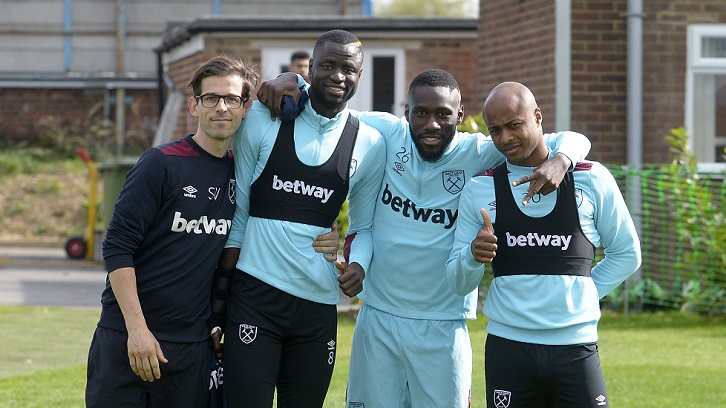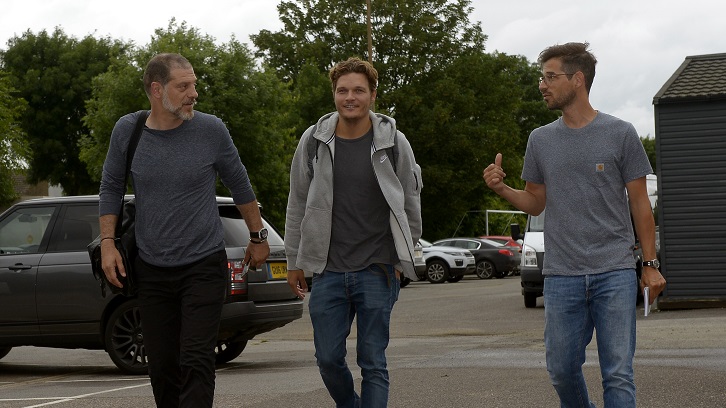Premier League stars are facing ever more exacting physical exertions every time they take to the pitch.
With outfield players running more than six miles and averaging around 50 sprints in the average 90-minute match, the intensity of top-flight fixtures is placing ever more strenuous demands on their bodies.
At the same time, the scrutiny emanating from growing world of digital and social media is placing more psychological strain on players than ever before.
To that end, Head of Medical and Sports Science Stijn Vandenbroucke and his staff face an ever-evolving challenge to keep players fit in both body and mind, with the aim of making as many as possible available for selection on matchday.

Stijn, it has been a momentous season for the Club, and for the medical and sports science department it has been no different, with moves to a new stadium and training ground…
“I think it’s a vast improvement, and it just shows how ambitious the Club is. The training ground has improved a lot. We have five very big pitches for the first team, we have a good gym, we have got a good treatment room, so it’s spot on."
What is your philosophy around training and how to prepare the players for matches, particularly as the physical demands of Premier League football have seemingly increased in recent years?
“Training is the biggest thing in a football club. We believe in training as a medical and sports science team. We believe in intense training and hard training is a vaccine against injuries. But we also believe that you need to be able to recover hard and be able to be professional.
“Football players should evolve to the environment where he is a football player almost 18 hours a day. We have gone away from footballers who are only athletes for two or three hours a day. So much more things are getting involved.
“Everything is quicker and more intense and more difficult and faster, so the room you have for improvement is becoming smaller. Details are becoming really, really important.
“In the last six years, the Premier League has become much quicker, the intensity is much higher and the risk for injuries is increasing with a congested calendar. We don’t have a winter break, and there are many obstacles.
“But it’s a challenge and I think we need to evolve to a different way of approaching day-to-day life and training, on and off the pitch, for all clubs in the Premier League to tackle this problem of injuries.
“It’s more complicated but it’s more challenging and more interesting, to be honest. Like I said, the Premier League is more intense, so we need bigger athletes, stronger athletes. To train different individuals and different athletes, you need different approaches than five, six, seven years ago.
“That’s a challenge to implement those changes in the game.”

What about the psychological pressures players now face that did not exist a decade ago – particularly the advent of social media?
“I think we all underestimate the power of social media. Sometimes an angry voice has a much louder voice on Twitter and Instagram and all these things. Not every player is built and has the robustness to deal with these mental things.
“If you have personal problems and you don’t get in the team for example, or you have an injury and one thing after another piles up, it could just be too much.”
We now go into the off-season. Some players are fit, some are undergoing rehabilitation following injuries or surgeries, while others are off on international duty, so how do you plan for this time of year?
“The players do an off-season programme and I urge the importance of taking a step back from football for a few weeks – not running, nothing – just enjoying yourself.
“And then the off-season programme kicks in for the fit players, and by the time they come back, they are really up and running.
“The balance is what is the right thing to do? You need to think about the total picture – what works, and what gives you the best results. Many of our injuries, depending on where they are in the stage of their rehab, will have holiday and they will work.
“Some players keep working and then have one or two weeks’ holiday, other players will now be off for a few weeks and will then start very early in June all the way up to the season.
“We will find a way to deal with it but at the end of the day, we are a football club, and we need fit players and fit athletes, so we’re looking forward to next season.”
*To watch the full interview with Head of Medical and Sports Science Stijn Vandenbroucke, click on the West Ham TV player above.
Keep your eyes peeled to whufc.com for more stories about some of the people who make West Ham United much more than just a football club.
#WeAreWestHam